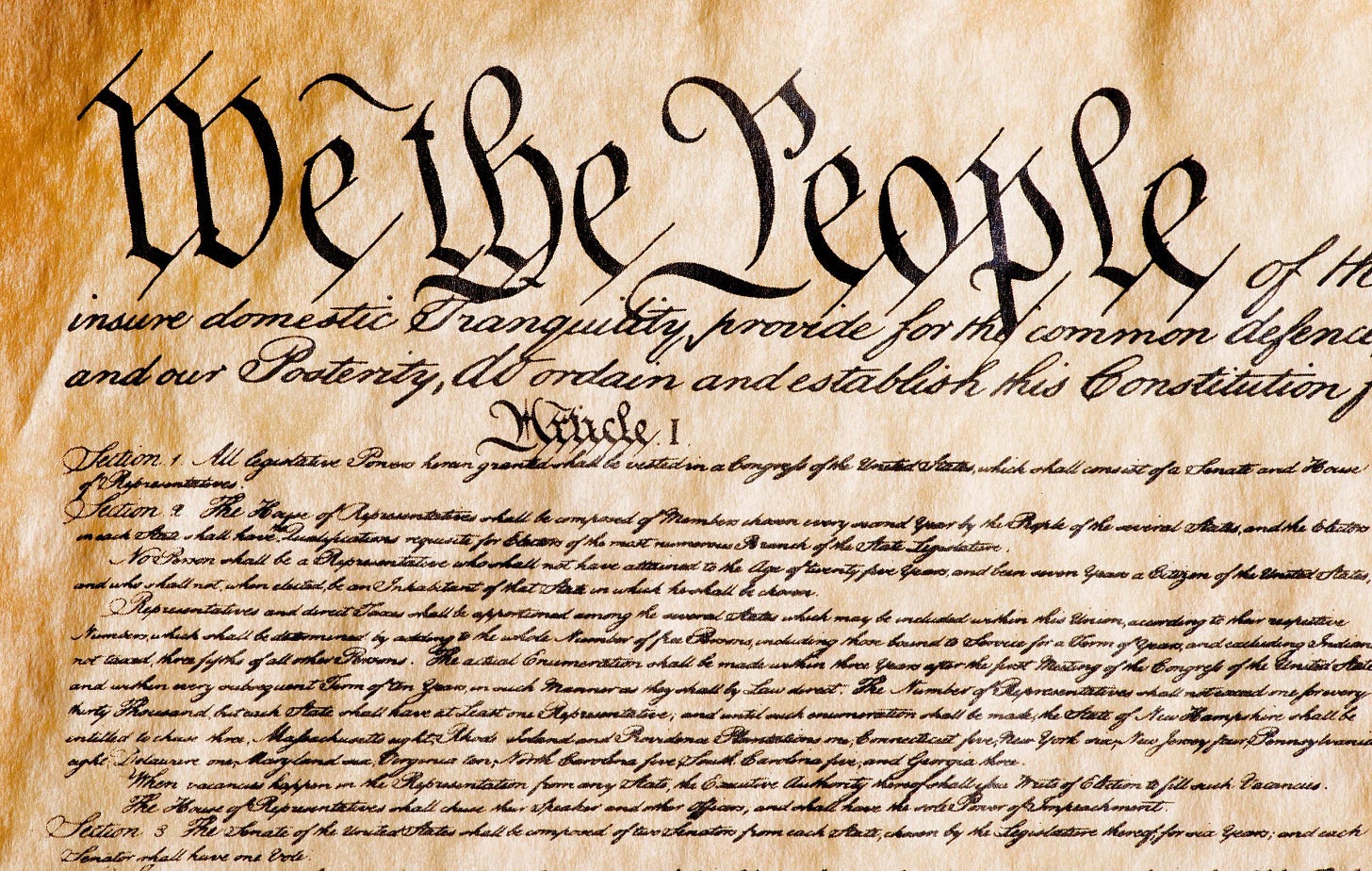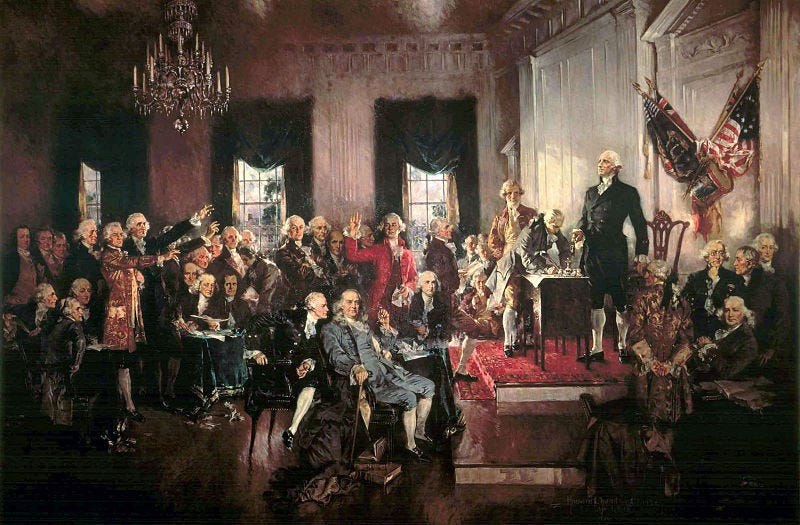Policymaker Ignorance…So What? (Part Two)
How to Respond to Policymaker Ignorance: The “Constitutional” Approach
This is the second part of a multi-part series that considers possible responses to the problem of policymaker ignorance, ways of mitigating policymaker ignorance, and appropriate attitudes to adopt with regard to ignorant policymakers.
In this newsletter, I consider the “constitutional” approach, a method of potentially moderating the negative consequences of policymaker ignorance, which might be deployed in tandem with or as an alternative to the “epistemic mechanistic” approach discussed in the first part of this series.
In the last part of the series, to be posted in a day or two, I will defend “policy skepticism” as the appropriate epistemic attitude to adopt toward ignorant policymakers and their policy machinations.
As noted toward the end of my previous newsletter about the “epistemic-mechanistic” approach to the problem of policymaker ignorance, there would seem to be significant epistemic burdens involved in the successful development and implementation of the approach. There are few reasons to think that policymakers could acquire the knowledge and capacities required to make it effective. The problem of policymaker ignorance might undermine the epistemic-mechanistic approach to mitigating the consequences of policymaker ignorance.
There is (at least) one other way that governments might be reformed to narrow the scope for policymaker ignorance to wreak havoc on the results of policy decisions. I discuss the “constitutional” approach to the problem of policymaker ignorance more extensively and in greater detail than I can here in the sixth chapter of my book, F. A. Hayek and the Epistemology of Politics: The Curious of Economics.
As its name suggests, the goal of the constitutional approach is a political constitution effectively crafted to minimize the consequences of policymaker ignorance. Minimizing the consequences of policymaker ignorance, on the constitutional approach, means limiting policymakers’ range of political motion to the pursuit of policy goals that they can, in whole or in part, help realize, given their epistemic and practical capacities.
It is impossible to make human policymakers truly omniscient and omnipotent, as I noted in the first part of this series. However, by constraining the goals that policymakers are constitutionally permitted to pursue to those realizable on the basis of their knowledge and abilities, we might make them functionally omniscient and functionally omnipotent, if only in their policy decisions.
The constitutional approach starts with historical and empirical investigation of the limits of deliberate political action as determined by the epistemic capacities and practical capabilities of relevant policymakers. The political epistemologist tries to determine how far policymakers can contribute to the realization of particular (kinds of) goals, and investigates the nature and extent of the spontaneous forces required to realize goals despite policymaker ignorance. The political epistemologist tries as far as possible to determine the range of policy ends that are more effectively realized through public, political, and collective means, and those ends that, because of the nature and extent of policymaker ignorance, are more likely to be realized, to the extent they can be realized at all, through private, non-political, and individual actions.
If such inquiry is performed at all well, as political epistemology develops, we should be able to progressively (if, as seems quite likely, at best, only approximately) divide policy goals into five sub-categories: 1) goals realizable deliberately, but not spontaneously; 2) goals realizable either entirely deliberately or entirely spontaneously; 3) goals realizable through a combination of deliberate action and spontaneous forces; 4) goals realizable spontaneously, but not deliberately; 5) goals not realizable at all.
The ultimate aim of the political epistemologist’s analyses is a constitution that assigns goals to the two classes of political actors, policymakers and constituents, in the manner most conducive to their realization, as determined by political epistemological inquiry. Such a constitution would prevent policymakers from pursuing goals they are too ignorant or too incapable to help realize. At the same, it would keep constituents from demanding the pursuit of goals to which policymakers cannot positively contribute.
Such a constitution would also help mitigate the subordinate problem of policymaker incentives. Where policymakers are kept to the pursuit of goals that they can help realize on the basis of their knowledge and abilities, ignorance cannot distort their incentives (because they are not ignorant with regard to the only goals they are permitted to pursue through policy means). Such a constitution would treat only a subset of constituents’ interests as relevant to public policy decisions, namely, those interests connected to policy goals that policymakers are knowledgeable and capable enough to help realize.
A finished political epistemology would tell us which goals are more effectively realized if assigned to policymakers to pursue and which goals are better realized by constituents. A perfected political epistemology would promote the realization of goals, whatever they might be, as far as it is humanly possible to realize goals. As a promoter of humankind’s goals, no other political system could improve upon one based on a perfected political epistemology.
Of course, there will never be a finished or perfected political epistemology. Potential policy goals differ from one place and one time to another, as do human epistemic and practical capabilities. However, given that, in their current state, the disciplines of political inquiry – political philosophy, political theory, political science, political economy, etc. – all but ignore the problem of policymaker ignorance, the main goal of political epistemology at the present moment cannot be to complete such an inquiry, but to start it.
The political epistemologist can begin by investigating the possibilities for both deliberate policymaking and spontaneity in the hopes of contributing to the long-run improvement of political decision-making.
In the third and final part of this series, I will consider how we should respond, what our attitudes should be, when we recognize that policymakers are ignorant with regard to some policy goal that they might try to realize.





